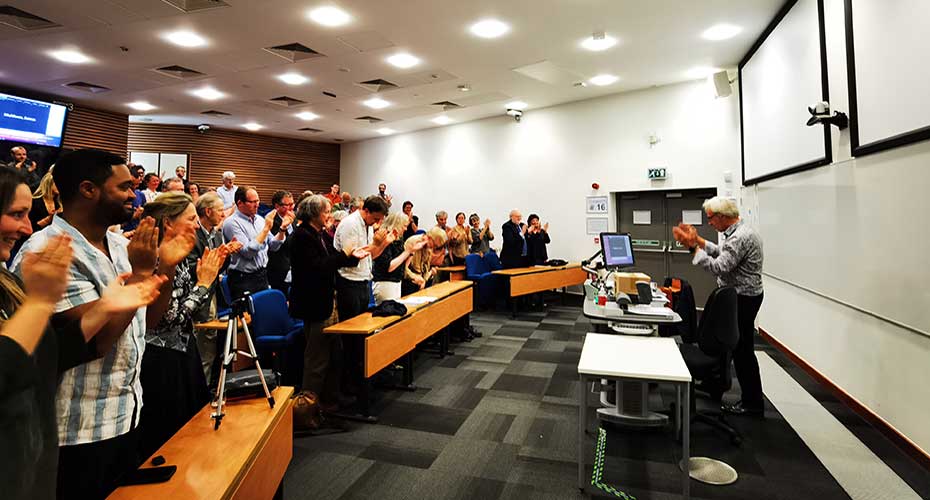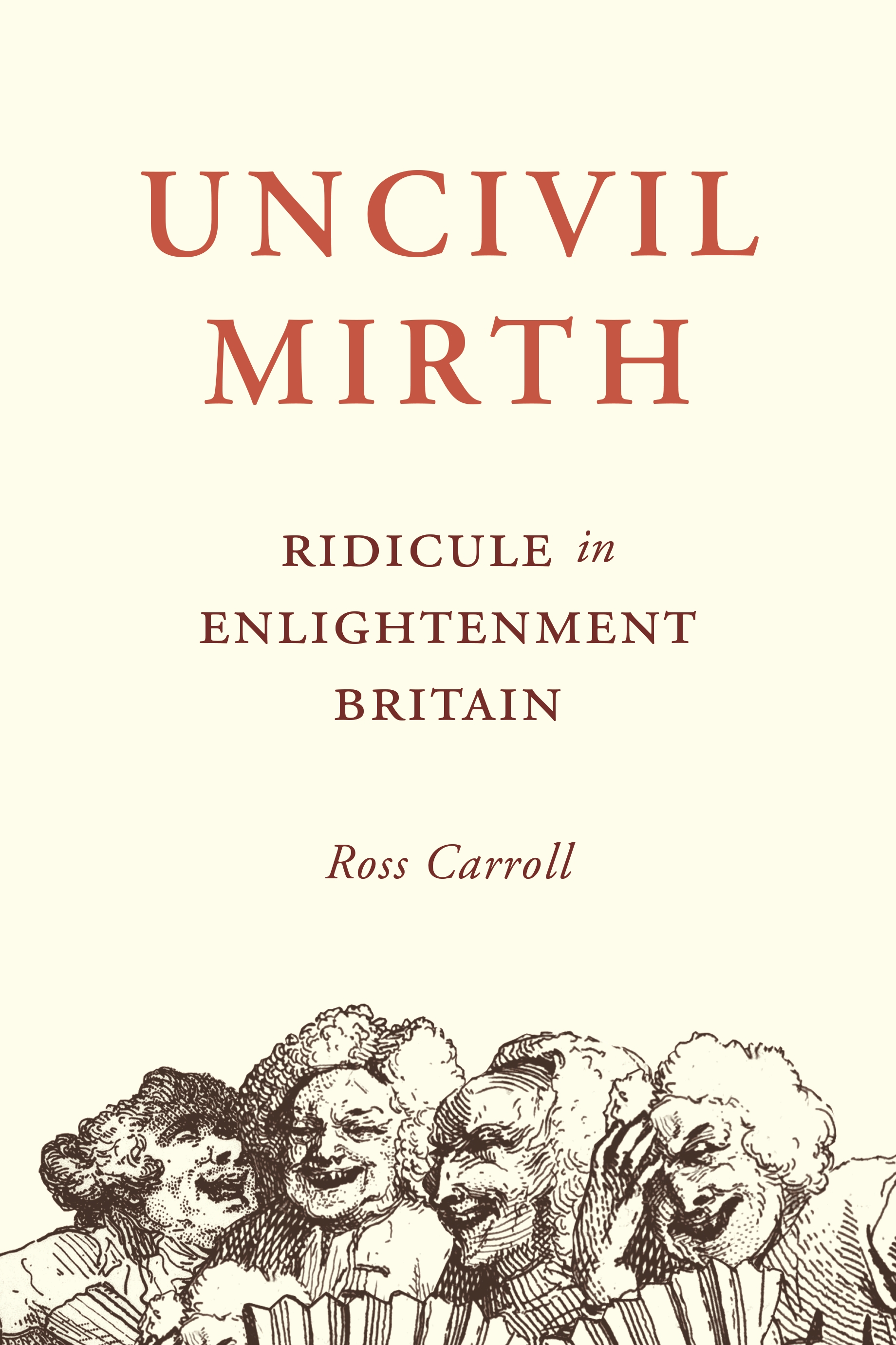History of Political Thought in Global Context
Nietzsche famously remarked that only things that have no history can be defined. As historians of political thought, we take this aphorism seriously by historicising the central concepts of modern politics such as citizenship, representation, human rights, and democracy. Our work also pays close attention to the rhetorical dimension of political thought, both by reading historical texts as interventions into live political controversies, and by uncovering how political theorists from Aristotle onwards treated persuasion and the art of shaping opinion as fundamental to political life. Finally, we strive to contextualise the major works of modern political thinkers – whether Hume, Mill, or Arendt – while at the same time reflecting critically on the politics of canon-formation and how the European tradition of political thought has been forged through sometimes violent exchanges and entanglements with the non-European world.
 |
Dr Dario CastiglioneCentre DirectorDario Castiglione’s main areas of research comprise democratic theory and the history of early modern political philosophy. He has written on representation, citizenship and constitutionalism; theories of civil society and social capital; the constitutional nature of the European Union; the Scottish Enlightenment, Hume and Mandeville; and 18th-century theories of the social contract and of their crittiques, and early modern scepticism. His main current research interests are on representation and political legitimacy; and the way in which political and conceptual discourses translates across linguistic and cultural divides |
 |
Dr Ross CarrollRoss Carroll's research interests are in the history of early modern political thought, with a focus on eighteenth and nineteenth century Britain and France. His first book, Uncivil Mirth: Ridicule in Enlightenment Britain (Princeton 2021), recovers the Enlightenment debate on the appropriate use of ridicule as an instrument of moral and political reform. He has also published recently on Mary Wollstonecraft's views on political economy, the history of contempt as a political and moral concept, and the hidden intellectual labour performed by the wives of great political thinkers such as Alexis de Tocqueville. At present Carroll is writing a short book on Edmund Burke and plans a future research project on the political thought of the French political theorist and abolitionist, Gustave de Beaumont. |
 |
Professor Iain Hampsher-MonkIain Hampsher-Monk’s own research interests lie in early-modern political thought and discourse, in particular, in republican thought and its naturalisation in British political thinking, in seventeenth and eighteenth-century radicalism, the political thought of Edmund Burke and his contemporaries, and in methodological problems associated with the history and understanding of the political thought of the past. He also works and publishes on contemporary political thought, particularly in areas associated with democratic theory, toleration and theories of equality. |
 |
Professor Robert LambRobert Lamb is interested in the history of political ideas, contemporary political theory, and philosophical issues related to the interpretation and understanding of texts. The main focus of his research is the intellectual tradition of modern liberalism – understood very broadly, and from the eighteenth century to the present – and its central political commitments. His published work has concerned historical and philosophical understandings of moral and political concepts such as human rights, property, equality, and freedom, and writers such as Locke, Paine, Rawls, and Rorty. His current research looks at the idea of political hope. |
 |
Dr Alex PrichardAlex Prichard’s research lies at the intersection of International Relations, political theory and anarchist studies. His work focuses on anarchist thought and anarchist constitutional politics in particular, as well as points at intersections and disagreements in anarchist and Marxist philosophies. In addition to this, Dr Prichard is interested in the ethics and phenomenology of war and violence, republican political theory, and co-production methods in political philosophy. In 2012 he co-founded, and now co-edits, the monograph series Contemporary Anarchist Studies, published by Manchester University Press. |
-100x100.jpeg) |
Dr Simon TownsendSimon Townsend’s primary area of research is the political philosophy of Friedrich Nietzsche. Currently, his research focuses on interpreting the underlying claims that Nietzsche makes about political states, including their formation and their periods of decadence and decline. He is investigating the complex relationship between political states and 'higher individuals', who are both a product of certain types of state but are often the driving impetus behind the emergence of strong states. He also writes on the philosophies and political theories of several twentieth-century Nietzscheans, including Georges Bataille and Michel Foucault, both in respect to their interpretations of Nietzsche and their overall body of work. His other research interest include contemporary agonistic democracy, both the Nietzschean and non-Nietzschean strands, which focuses on the inevitability of conflict between social groups and the necessity of processing this conflict democratically. |
Ross Carroll
Uncivil Mirth: Ridicule in Enlightenment Britain (Princeton, N.J: Princeton University Press, 2021)
‘How Contempt Became a Passion,’ History of European Ideas 45, no. 3 (2019)
‘Wollstonecraft and the Political Value of Contempt’ European Journal of Political Theory 18, no. 1 (2019): 26-46
‘Ridicule, Censorship, and the Regulation of Public Speech: The Case of Shaftesbury,’ Modern Intellectual History 15, no. 2 (2018)
‘Revisiting Burke’s Critique of Enthusiasm’ History of Political Thought 35, no. 2 (2014): 317-344
Dario Castiglione
Les Défis de la Representation (co-edited with Manuela Albertone) Garnier Classiques, 2018.
‘The Origins of Civil Government’, in James Harris (ed.), Oxford Handbook of British Philosophy in the Eighteenth Century, OUP, 2013, pp. 491-529.
Oxford Handbook on Social Capital (co-edited with Jan van Deth and Guglielmo Wolleb), Oxford University Press, 2008.
The History of Political Thought in National Context (co-edited with Iain Hampsher-Monk), Cambridge University Press, 2001.
Robin Durie
‘Wandering Among Shadows’. Southern Journal of Philosophy 48(4), 2010, 371-392
‘At the Same Time: Continuities in Derrida’s Readings of Husserl’, Continental Philosophy Review, 41.1, 2008, 73-88
Iain Hampsher-Monk
Concepts and Reason in Political Theory, Colchester, ECPR Press, 2015
Burke: Postrevolutionary Writings: Reflections on the Revolution in France and the Letter on a Regicide Peace, Cambridge: Cambridge University Press, 2013
The Impact of the French Revolution: Texts from Britain in the 1790s, Cambridge University Press, 2005
A History of Modern Political Thought: Major Political Thinkers from Hobbes to Marx, Oxford, Blackwell, 1992
Lise Herman
‘Why does the European Right accommodate backsliding states? An analysis of 24 European People’s Party votes, 2011-2019.’ European Political Science Review 13 (2021) Pages 169-187. (with Hoerner J, Lacey J.)
‘Can partisans be pluralist? a comparative study of party member discourse. in France and Hungary.’ The British Journal of Politics and International Relations 23 (2020) Pages 22-42.
‘Resisting Abusive Legalism: Electoral Fairness and the Partisan Commitment to Political Pluralism.’ Journal of Representative Democracy 1 (2020) Pages 363-383. (with Muirhead R)
Trumping the Mainstream: The Conquest of Democratic Politics by the Populist Radical Right. London, Routledge, 2018. (with Muldoon J.)
Robert Lamb
Property (Polity, 2020)
‘Political Philosophy and the Nature of Expertise’, Critical Review of International, Social, and Political Philosophy 23:7 (2020), 910-930
‘Pragmatism, Practices, and Human Rights’, Review of International Studies 45:4 (2019), 550-568
‘Historicising the Idea of Human Rights’, Political Studies 67:1 (2019), 100-115
Thomas Paine and the Idea of Human Rights (Cambridge University Press, 2015)
Catriona McKinnon
Issues in Political Theory, Oxford University Press, 2019, 4e.
Toleration: A Critical Introduction, Routledge, 2006.
Liberalism and the Defence of Political Constructivism, Palgrave, 2002.
James Mulddon
‘After Council Communism: the Post-War Rediscovery of the Council Tradition,’ Intellectual History Review (RIHR) (forthcoming)
‘Foucault’s Forgotten Hegelianism,’ Parrhesia: a journal of critical philosophy, vol. 21, 102-112 (forthcoming)
Building Power to Change the World: The Political Thought of the German Council Movements. Abstract, Oxford University Press, 2020.
Council Democracy: Towards a Democratic Socialist Politics (ed.), London, Routledge, 2018.
‘Arendtian Principles. Political Studies,’ 64(1_suppl), 2016, 121-135.
‘The Origins of Hannah Arendt’s Council System,’ History of Political Thought, 3(4), 2016, 761-789.
‘Arendt’s Revolutionary Constitutionalism: Between Constituent Power and Constitutional Form,’ Constellations, vol. 22, no. 4 (2016) pp. 596-607.
Alex Prichard
Forthcoming. "Anarquismo [Anarchism]." In Teorías Críticas de Relaciones Internacionales, edited by Marta Íñiguez de Heredia Itziar Ruiz-Giménez, Ángela Iranzo. Valencia: Tirant Lo Blanch.
Forthcoming. "Jus Gentium in Proudhon’s War and Peace." In Just War Thinkers, Vol II edited by Daniel Brunstetter and Cian O’Driscoll. Routledge.
Forthcoming. "Kenneth Waltz’s Kantian Moral Philosophy: The ‘Virtues of Anarchy’ Revisited." International Theory.
‘Proudhon's Mutualist Social Science’ in The Cambridge History of Socialism ed. Van der Linden M. Cambridge: Cambridge University Press, 2021.
‘Flipping the academic conference, or how we wrote a peer-reviewed journal article in a day.’ Alternatives: Global, Local, Political 45 (2020) Pages 3-19. (with Baron I, Havercroft J, Kamola I, Koomen J)
‘Freedom,’ in Palgrave Handbook of Anarchism ed. Adams M, Levy C. London: Palgrave, 2018. Pages 71-89.
Andrew Schaap
‘Denaturalizing Hannah Arendt and Claudia Jones: Statelessness, Citizenship and Racialization.’ In Brennan D, La Caze M (Eds.) Hannah Arendt and the History of Thought. London: Lexington Books, 2022.
‘Inequality, Loneliness and Political Appearance: Picturing Radical Democracy with Hannah Arendt and Jacques Rancière’, Political Theory 49(1) 2021: 28-53.
‘“Do you not see the Reason for Yourself?” Political Withdrawal and the Experience of Epistemic Friction’, Political Studies, 68(3) 2020: 565-581
‘Radical Democracy within Limits’ in Peter Gratton & Yasemin Sari (eds) The Bloomsbury Companion to Arendt. London: Bloomsbury, 2020, 481-491.
(with Edwina Howell) ‘The Aboriginal Tent Embassy and Australian Citizenship’ in Engin Isin & Peter Nyers (eds) The Routledge Handbook of Global Citizenship Studies. London: Routledge, forthcoming 2014.
Simon Townsend
‘Nietzsche on the Rise of Strong Political States and Their Cultivation of Higher Individuals.’ Review of Politics 82 (2020) Pages 73-95
‘Book Review: Jeffrey Metzger, The Rise of Politics and Morality in Nietzsche's ‘Genealogy’: From Chaos to Conscience.’ The Review of Politics 83 (2020) Pages 149-152
‘The Exploitation of Sacred Desire: Rethinking Georges Bataille's Political Theory.’ Theory & Event 21 (2018) Pages 844-864.
‘Beyond the Myth of the Nietzschean Ideal-Type.’ European Journal of Philosophy 25 (2017) Pages 617-637.
‘Book Review: Hugo Drochon, Nietzsche's Great Politics.’ Contemporary Political Theory 16 (2017) Pages 566-569.
Ross Carroll
-
Imagining Emancipation: Projects for Abolishing Slavery in the History of Political Thought, 1750-1888
Dario Castiglione
- 2001: EURESCO Conference on ‘Social Capital: Interdisciplinary Perspectives’, sponsored by ESF and EC
Rethinking ‘the Hegel-Marx Problem’
Seminar by Professor ZHANG Shuangli (Dean of the School of Philosophy, Fudan University).
Hierarchy and Inclusion in Classical Confucianism
Talk by Loubna El Amine (Northwestern University).
How to Interpret Chinese Philosophy to the West
Reading Group Session by Professor SUN Xiangchen (Dean of the School of Philosophy, Fudan University)
Organized by the Centre for Political Thought and supported by Exeter-Fudan Global Thought Network and Entanglement of Political Languages Research Network.
This workshop is organized by the Centre for Political Thought and connected to the European Horizon REDIRECT project. Although the research project is about the current state of representative democracy, the workshop we have organized is of a more historical character, and focussed on the early modern emergence of concepts, practices and institutions of democracy and representation. None of the presenters are linked to the research project. They presented their own work on some of these ideas.
- Session 1: "Representation" Alan Cromartie (University of Reading): The Word ‘Represent’: 1300-1649
- Session 2: "The People" James Harris (University of St. Andrews): The People and the Multitude: Pufendorf and Locke in Reply to Hobbes
- Session 3: "Democracy" Cesare Cuttica, (University of Helsinki): Studying Early Modern Democracy: Questions and (a Few) Answers. Markku Peltonen (University of Helsinki): Early Modern Democracy: Three Approaches
Self, Family and Community: Eastern and Western Perspectives
- Session on Family: SUN Xiangchen (Dean of the School of Philosophy, Fudan University), “Family Feeling”
- Session on Community: Presentations by Robin Durie and Jack Tagney (University of Exeter)
- Session on the self, subjectivity and the state: Presentation by Nathan Widder (Royal Holloway), followed by discussion

Academic Life and Interdisciplinarity: Learning from Experience
After a 50-year distinguished career at Exeter, our friend and colleague, Professor Iain Hampsher-Monk retired last academic year. On the 6th and 7th of May 2022, the Centre for Political Thought organised a two-day event in his honour with the support of the Department of Politics, the SSIS Graduate School and Imprint Academic (the publisher of History of Political Thought, the leading journal in the area co-founded and edited by Iain).
Find the programme, lecture video, and more details of the event







